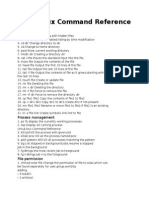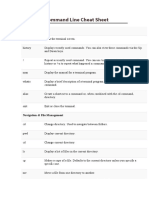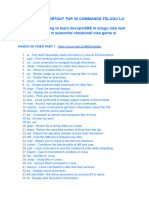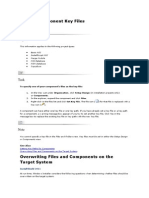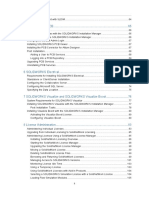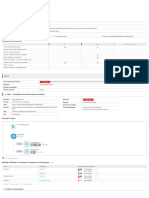0% found this document useful (0 votes)
30 views3 pagesOperating System Linux Commands
The document lists Linux commands for file management, system information, and process management. It includes commands for listing, copying, moving, deleting, and modifying files, as well as commands for viewing system details like memory, disk, and CPU usage. Process commands allow viewing and killing running processes.
Uploaded by
shreyasCopyright
© © All Rights Reserved
We take content rights seriously. If you suspect this is your content, claim it here.
Available Formats
Download as DOCX, PDF, TXT or read online on Scribd
0% found this document useful (0 votes)
30 views3 pagesOperating System Linux Commands
The document lists Linux commands for file management, system information, and process management. It includes commands for listing, copying, moving, deleting, and modifying files, as well as commands for viewing system details like memory, disk, and CPU usage. Process commands allow viewing and killing running processes.
Uploaded by
shreyasCopyright
© © All Rights Reserved
We take content rights seriously. If you suspect this is your content, claim it here.
Available Formats
Download as DOCX, PDF, TXT or read online on Scribd
/ 3

